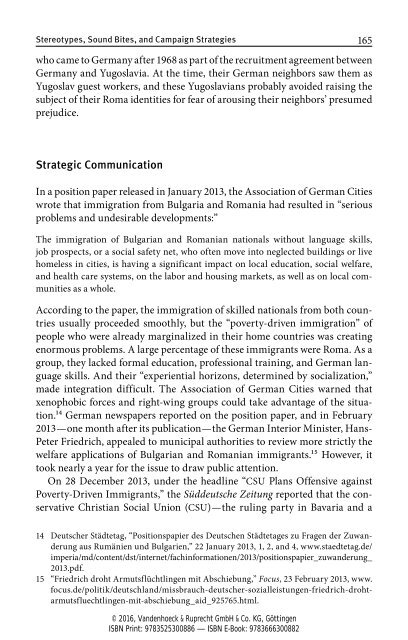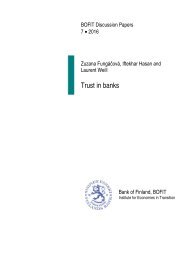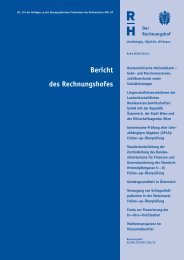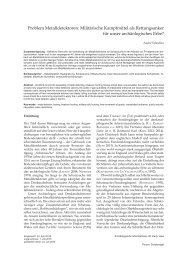Media and Minorities
9783666300882_ruhrmann_media_ebook_034247
9783666300882_ruhrmann_media_ebook_034247
Create successful ePaper yourself
Turn your PDF publications into a flip-book with our unique Google optimized e-Paper software.
Stereotypes, Sound Bites, <strong>and</strong> Campaign Strategies 165<br />
who came to Germany after 1968 as part of the recruitment agreement between<br />
Germany <strong>and</strong> Yugoslavia. At the time, their German neighbors saw them as<br />
Yugoslav guest workers, <strong>and</strong> these Yugoslavians probably avoided raising the<br />
subject of their Roma identities for fear of arousing their neighbors’ presumed<br />
prejudice.<br />
Strategic Communication<br />
In a position paper released in January 2013, the Association of German Cities<br />
wrote that immigration from Bulgaria <strong>and</strong> Romania had resulted in “serious<br />
problems <strong>and</strong> undesirable developments:”<br />
The immigration of Bulgarian <strong>and</strong> Romanian nationals without language skills,<br />
job prospects, or a social safety net, who often move into neglected buildings or live<br />
homeless in cities, is having a significant impact on local education, social welfare,<br />
<strong>and</strong> health care systems, on the labor <strong>and</strong> housing markets, as well as on local communities<br />
as a whole.<br />
According to the paper, the immigration of skilled nationals from both countries<br />
usually proceeded smoothly, but the “poverty-driven immigration” of<br />
people who were already marginalized in their home countries was creating<br />
enormous problems. A large percentage of these immigrants were Roma. As a<br />
group, they lacked formal education, professional training, <strong>and</strong> German language<br />
skills. And their “experiential horizons, determined by socialization,”<br />
made integration difficult. The Association of German Cities warned that<br />
xenophobic forces <strong>and</strong> right-wing groups could take advantage of the situation.14<br />
German newspapers reported on the position paper, <strong>and</strong> in February<br />
2013 — one month after its publication — the German Interior Minister, Hans-<br />
Peter Friedrich, appealed to municipal authorities to review more strictly the<br />
welfare applications of Bulgarian <strong>and</strong> Romanian immigrants.15 However, it<br />
took nearly a year for the issue to draw public attention.<br />
On 28 December 2013, under the headline “CSU Plans Offensive against<br />
Poverty-Driven Immigrants,” the Süddeutsche Zeitung reported that the conservative<br />
Christian Social Union (CSU) — the ruling party in Bavaria <strong>and</strong> a<br />
14 Deutscher Städtetag, “Positionspapier des Deutschen Städtetages zu Fragen der Zuw<strong>and</strong>erung<br />
aus Rumänien und Bulgarien,” 22 January 2013, 1, 2, <strong>and</strong> 4, www.staedtetag.de/<br />
imperia/md/content/dst/internet/fachinformationen/2013/positionspapier_zuw<strong>and</strong>erung_<br />
2013.pdf.<br />
15 “Friedrich droht Armutsflüchtlingen mit Abschiebung,” Focus, 23 February 2013, www.<br />
focus.de/politik/deutschl<strong>and</strong>/missbrauch-deutscher-sozialleistungen-friedrich-drohtarmutsfluechtlingen-mit-abschiebung_aid_925765.html.<br />
© 2016, V<strong>and</strong>enhoeck & Ruprecht GmbH & Co. KG, Göttingen<br />
ISBN Print: 9783525300886 — ISBN E-Book: 9783666300882







